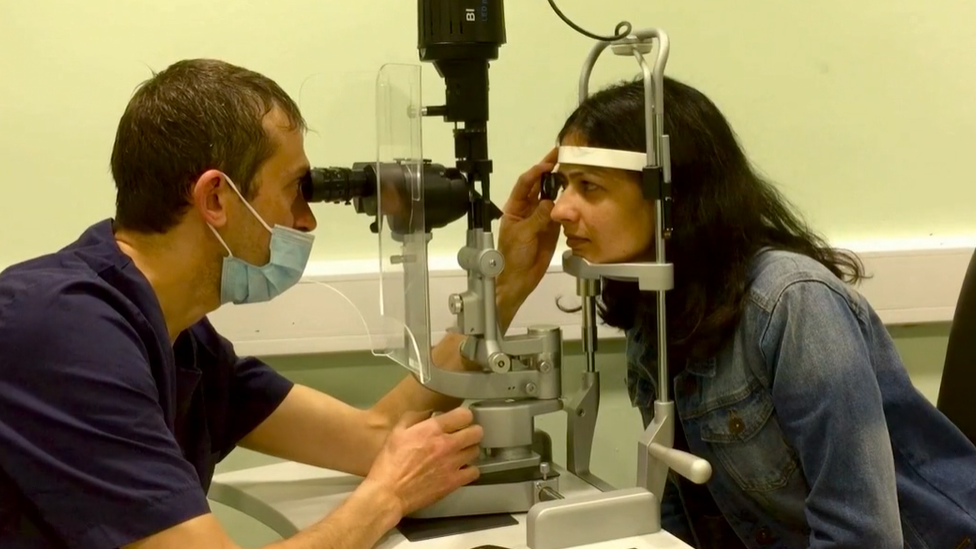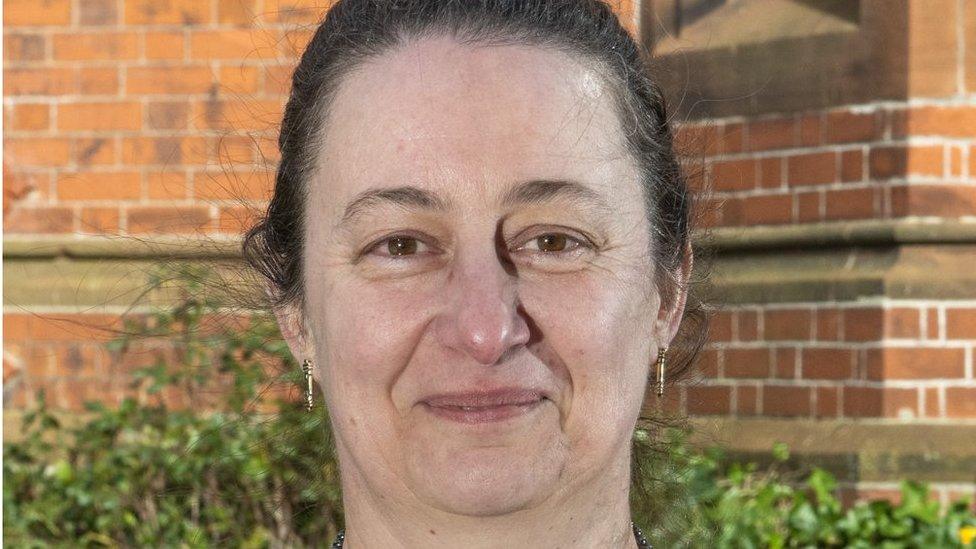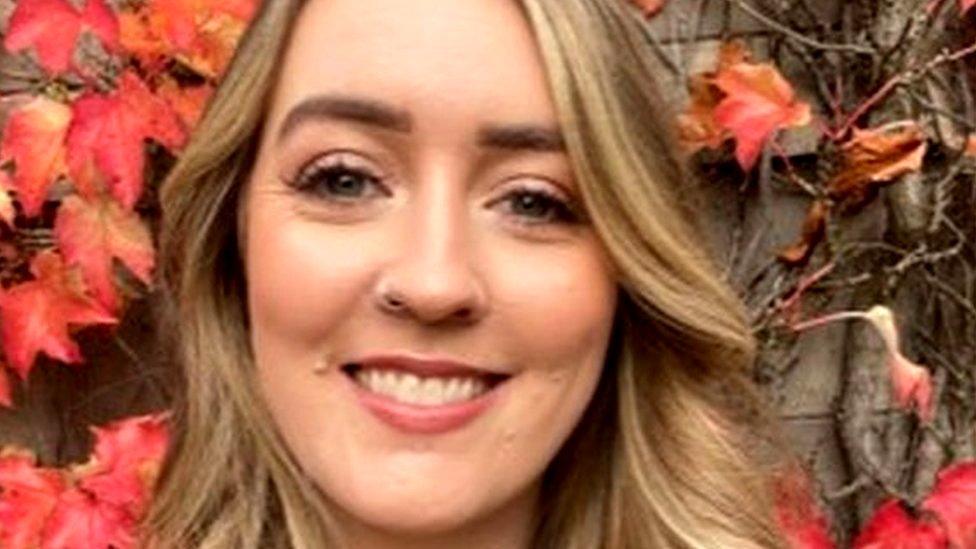Diabetes: Warning that missing eye test appointments risks sight loss
- Published

Regular eye testing is important for diabetics
Diabetes patients have been warned that non-attendance at eye-test appointments puts them at greater risk of developing unnecessary sight loss.
The Royal National Institute for the Blind (RNIB) has described the attendance rates at clinics in Northern Ireland as "alarmingly low" .
It said 20% to 40% of patients were not showing up for their appointments on any given day.
On Saturday afternoons that figure can be even higher.
Prof Tunde Peto, clinical lead for the NI Diabetic Eye Screening Programme, said the most common of many complications caused by diabetes was diabetic eye disease.
Diabetes can cause cataracts early on but it can also affect the retina at the back of the eye, "which will eventually lead to sight loss if not treated on time," Prof Peto explained.
"Diabetic retinopathy causes no symptoms until it can be just about too late to treat," she said.
The good news is that, if the disease is caught early enough through screening, treatments are available.

Prof Tunde Peto says the diabetic eye disease doesn't show symptoms until it has already developed
Ian Catlin from Ballymoney has experienced sight loss due to diabetic retinopathy.
He has had Type 1 diabetes since childhood and became aware of problems with his eyesight in his mid-30s.
"Probably when I was about 33, I started having problems and it's been slowly getting worse," he said.
"I'm totally blind in the left eye and I'm losing the vision in right eye slowly."
Mr Catlin explained that the blood vessels at the back of his eye burst due to the high level of blood sugars.
"I'm a joiner by trade and I can't do that anymore," the County Antrim man said, adding that he's lucky to have his wife and children to help him cope.

Ian Catlin says some people don't attend eye clinics because of fear of the unknown
Mr Catlin said he put off asking for medical help because of the fear of what he would be told.
"I did eventually go, but you're scared and you put your head in the sand," he said.
Diabetes patients are sent a number of reminders of their appointments, including letters and day-before texts, Prof Peto explained.
She said appointment slots that could have been used by another patient are lost if someone doesn't turn up.
Increasing numbers
There are about 115,000 people with diabetes in Northern Ireland and that figure is increasing by 5% to 7% annually.
The eye screening programme has put on evening and weekend clinics to help deal with the numbers.
"People usually prioritise things that give them symptoms and because eye disease doesn't give symptoms until it's really late, sometimes people don't appreciate that they should be coming," said Prof Peto.
"If you absolutely cannot come then please cancel on time so we can give the appointment to someone else," she added.
Mr Catlin advised people who receive appointments to overcome their fears.
"Go. You need to go and you need to find if there are any abnormalities," he said.
"You can catch it and you can stop any severe problems happening."
- Published9 May 2022

- Published16 November 2020

- Published15 November 2021
